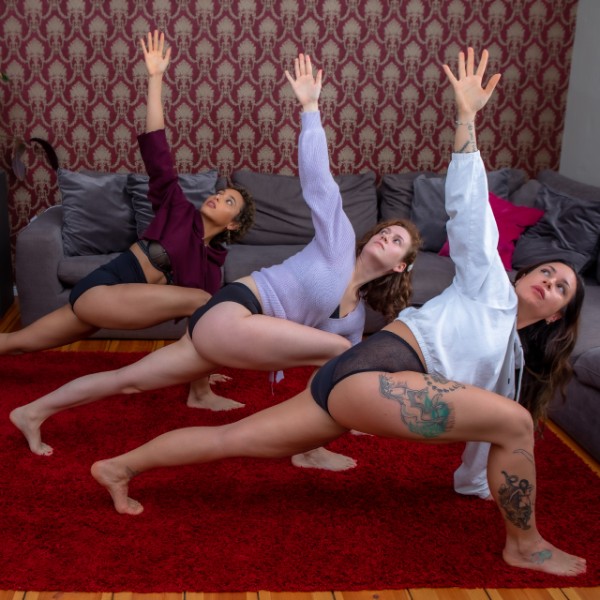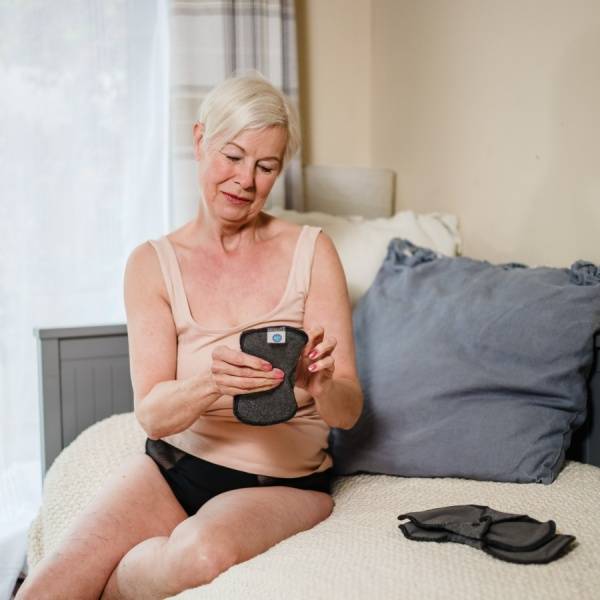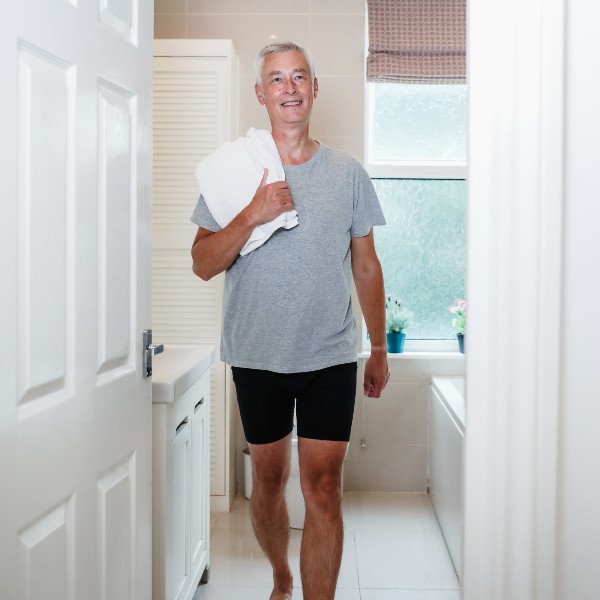10 Top Tips on How to Help Urinary Incontinence
If you suffer from urinary incontinence, there's some easy lifestyle changes you can make to improve your symptoms. To help urinary incontinence, you can:
- Do your pelvic floor exercises daily - men and women!
- Exercise - but choose the right exercises
- Avoid heavy lifting
- Lose weight if you're overweight
- Reduce caffeine intake
- Cut down on alcohol
- Drink lots of water
- Avoid spicy & acidic foods
- Prevent constipation
- Quit smoking
Do your pelvic floor exercises daily - men and women!
Exercising your pelvic floor correctly and consistently can really help to reduce little leaks, but they need to be done properly. Some women find that using devices such as pelvic floor training weights really help them focus on strengthen your pelvic floor, and build up strength gradually over time.
Advice used to be that you should try and stop your flow of urine mid-flow to help improve pelvic floor strength, however this is no longer recommended due to the possibility of causing urinary tract infections.
Pelvic floor exercises or 'kegel exercises' aren't just for women either. Men can really benefit from pelvic floor exercises too.
Exercise - but choose the right exercises to improve pelvic floor health
Trust us, we've been there - you start to do 'Star Jumps' and have to dash out of class to empty your bladder, or face a trickle of wee down your leg. That's because high-impact exercise can increase pressure on your pelvic floor muscles, causing leaking urine. It's not just HIIT classes you have to worry about though, doing sit-ups can also cause this to happen.
For that reason low-impact strengthening exercises, such as pilates are recommended. This benefits from strengthening your core muscles, brilliant for improving stress incontinence.

Avoid heavy lifting
Any type of lifting can put strain on your pelvic floor muscles, so avoid it if possible.
To be clear, that's not weight training in the gym, but also day to day things like, picking up your children or bags of shopping. If this is necessary, it's always a good idea to brace your pelvic floor muscles both before and during the action.
Lose weight if you're overweight
Being overweight isn't great for your health for lots of reasons, but did you know it can contribute to incontinence too? That's because the pressure of fatty tissue on your bladder can weaken your pelvic floor muscles. Losing weight could really improve or remove your symptoms altogether.
Reduce caffeine intake
Did you know that caffeine is a bladder irritant which can make incontinence worse and upset an overactive bladder? Switching or reducing caffeine is an easy way to help improve incontinence.
Despite what you may think, decaf coffee and tea taste just as good as caffeinated. Having made this switch, it's recommended to gradually replace your caffeinated drinks one by one. Going cold turkey on caffeine withdrawal is no fun as it can create a 10 day headache whilst your body adjusts.
Of course, caffeine isn't just found in tea and coffee, but also fizzy drinks, green tea, energy drinks and hot chocolate. Replace these with water and herbal or fruit teas, or their decaf versions.
Cut down on alcohol
Reducing your alcohol intake can also improve continence because alcohol is a diuretic, which means that it increases your urge to urinate. Cutting down may help incontinence symptoms, including mixed incontinence.
Drink plenty of water
Whilst you're considering what you drink, ensuring that you drink 6 to 8 glasses of fluid a day is also really important. We understand that you might avoid drinking fluid, thinking that it's making things worse, however by reducing your fluid intake, it can reduce your bladder capacity.
Bladder training, where you drink and hold liquid, rather than have a wee 'just in case' can really help with urge incontinence. In addition, not drinking enough can also cause constipation which can also impact urinary incontinence.
Avoid spicy & acidic foods
Spicy and acidic foods, like curry and citrus fruits, can irritate the bladder making leaks and other incontinence symptoms worse.
Prevent constipation
If you suffer with constipation, a side effect of straining to have a poo is that it can weaken your pelvic floor muscles which makes urinary incontinence worse.
Avoid constipation by eating more fibre and exercising more if possible. It can also help to try adding linseeds to your diet which really helps with constipation during pregnancy.
Quit smoking
If you smoke, you've got an increased risk of incontinence due to the strain that coughing puts on your pelvic floor muscles.
NHS Smokefree support services, are a free service which can help you to stop smoking.
All of these lifestyle changes will help to reduce your urinary incontinence symptoms, however they do take time to improve. During that time you may find it helpful to use reusable incontinence accessories to manage those little leaks.

What are the best pads for bladder leaks?
The best pads for bladder leaks are pads which comfortable but not bulky which absorb fluid quickly to allow you to get on with your life. Nowadays, these aren't limited to disposable incontinence pads such as Tena as there are ranges of reusable incontinence pads and products available to help with mens incontinence, womens incontinence and children's incontinence Not only as these more comfortable to wear as they won't chafe like disposable pads, but they're much more eco-friendly. In addition, with many users needing 3 or 4 incontinence pads daily, switching to washable incontinence pads will save you money too.
We hope you've enjoyed this article and as always feedback and comments are welcome. You might also find these related articles useful:
- how to help a child with daytime wetting
- how do you clean reusable sanitary pads
- the ultimate guide to reusable incontinence pants which are stylish AND smart
About the Author: Helen Rankin is founder of Cheeky Wipes & Cheeky Pants which have been at the forefront of delivering simple reusable products since 2008. Having had 4 children, her pelvic floor has been better days so she has been working on improving her pelvic floor strength for several years. Her team of customer services experts just LOVE to talk pee, poo and periods and pride themselves on helping consumers make the switch to reusables with their tailored help questionnaires. The company was recognised with the Queens Award in Sustainable Development in 2021.
